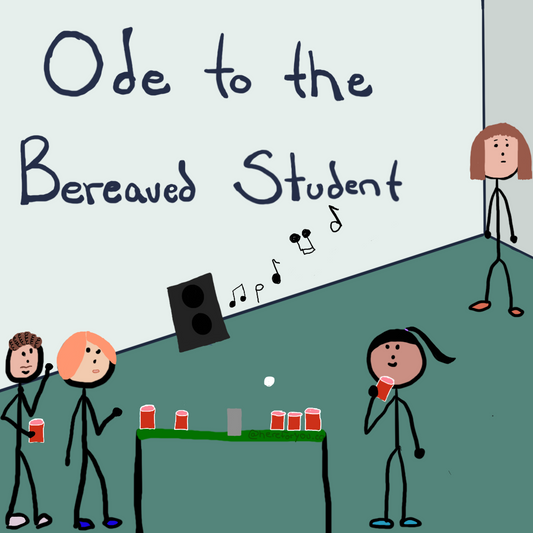Grief is complicated and difficult. To be a family member or friend of someone who lost their life by suicide adds an additional level of complexity. Much of this is due to the stigma of suicide. I dedicate this post to those trying to survive after a loss by suicide and those living with so much pain that they have suicidal thoughts and/or intentions.
It’s National Suicide Prevention Week, and September is certainly a time of year when there is a heightened focus on suicide prevention and a focus on how to support our friends and family who are struggling with their mental health.
One thing I've noticed is that whenever there is celebrity suicide, there’s also a slew of well-intentioned social media postings that remind friends/family that there is a loved one with a listening ear that is ready and waiting.

I am not the first to say this, but my perception of these posts is that they assuage the guilt for the poster and are not helpful for someone dealing with mental illness and/or suicidal thoughts. These posts come from a good place but do very little (and likely nothing) to help anyone living in pain.
When we post something like, "Friends who feel alone - I'm here to listen. Please contact me whenever, day or night, to talk," we are putting the burden of getting help on the person who is suffering. We can pretty much count on the fact that someone who is struggling to live with depression will most likely not reach out when they need it most. The way we can be most helpful is to check on friends and family we are concerned about.
(BTW - these generic social media postings remind me of one of my least favorite offers of help when someone is grieving - the infamous, “let me know what I can do.”)

I know that people want to be helpful when they make non-specific offers for help or post the suicide prevention hotline. But those good intentions aren't cutting it. The purpose of Here For You is to gift people the things that are actually helpful when they’re going through difficult life moments (hint: #noflowersnofruit) and to facilitate an honest conversation about these human experiences. I would like to be part of the conversation on how we can both best support people who are suicidal and hurting and the many people who have been impacted by a loved one's death by suicide.
On that note - I am not an expert on suicide, suicidal thoughts, or mental health. I have not had a loved one die by suicide, but I can imagine how complex my feelings would be if my sister or father had died by suicide. For many years (and like many people), I thought of suicide as selfish. I simply couldn’t wrap my head around it.

About 15 years ago I heard a story on This American Life which started to change the way I thought about suicide. I began to see how difficult it is for some people to keep living when the pain they feel is so suffocating.

In recognition of National Suicide Prevention Week, I have gathered some resources that are helpful to better understand suicide, what to do if you suspect that someone in your life is suicidal, where to turn for suicide support, and the language to use when discussing suicide. I end with the stories of people who have been impacted by suicidal thoughts or suicide.
Facts about suicide (which is the 2nd leading cause of death for 15-24 year olds globally).
Support groups and peer support volunteers for suicide loss survivors.
Resources for suicide loss survivors.
Memoirs on mental illness.
Risk factors and warning signs of suicide.
What to do if you suspect that someone you know is suicidal (including suicide myths).
Stop saying s/he committed suicide.
Season 2 of the incredible podcast Last Day focused on suicide. The first episode in the series can be found here.
And here are voices of people touched by suicide:
Jen on the death of her sister, Stacey
Kristina on the death of her brother, Jim.
Kristen on the death of her boyfriend, Keith.
Alana on the death of her Aunt, Sherrie.
Jim on his call to the Suicide Prevention Hotline.
You can find more of these stories here and here.

In July 2022 the 988 Suicide & Crisis Lifeline was implemented as a federally mandated crisis number. All cell phone and landline users can call 988 to access a network of 200+ local and state crisis centers. I look forward to our culture embracing 988 as readily as we do 911.
____
Here For You offers fully customizable care packages for family and friends living through life's toughest transitions. Our practical gifts range from curated household essentials to customizable sets of self-care items, all prepared with a personal touch.


